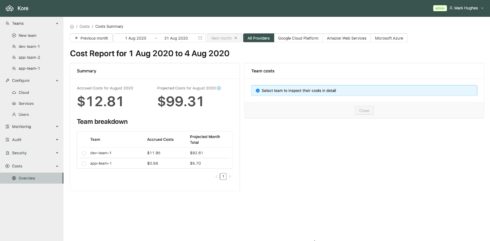
Appvia announced a new feature that allows users to manage cloud spending with the Kore Cost prediction and visibility tool.
With the new solution, engineering teams are also able to see cost implications across different cloud providers and reusable cloud templates (plans), and immediately see how altering node pool sizes and instances would change these costs.
“This helps stop project costs from spiraling out of control in early stage development so that you can embed a cost-first development approach and budget for the right size infrastructure from the get-go,” Appvia wrote in a post.
OpenLogic by Perforce expands Java support
OpenLogic by Perforce announced that it now provides an enterprise-class alternative to Oracle Java by offering the most widely-used OpenJDK distributions backed by OpenLogic support.
“OpenLogic provides product-agnostic, consolidated open source support so companies can reduce to one vendor for their entire stack,” said Tim Russell, the chief product officer at Perforce. “This enables organizations to simplify issue resolution and receive unbiased innovation guidance, while cutting costs and risks so they can confidently deploy open source in business critical systems.
Android App Bundle improvements
Android announced App bundle improvements and a timeline for new apps on Google Play.
The app bundle enables modular app development using dynamic feature modules with a range of customizable delivery options. By default, install time modules are now automatically fused when app bundles are processed into distribution APKs.
Also, feature-to-feature dependency is now available in Android Studio 4.0 so that users can specify that a dynamic feature module depends on another feature module.
Additional details are available here.
TriggerMesh announces integration with Amazon Event Bridge
TriggerMesh added an integration with Amazon EventBridge that allows users to connect virtually any non-AWS event source with AWS EventBridge.
For example, on-premises applications can trigger Amazon Lambda functions that provide additional processing capabilities or tie directly to Amazon Web Services — SQS, Kinesis, and SNS, the company explained.
“This integration extends the power of modern, cloud-based serverless applications to include the mission-critical applications that still run in enterprise data centers,” TriggerMesh wrote in a blog post.






